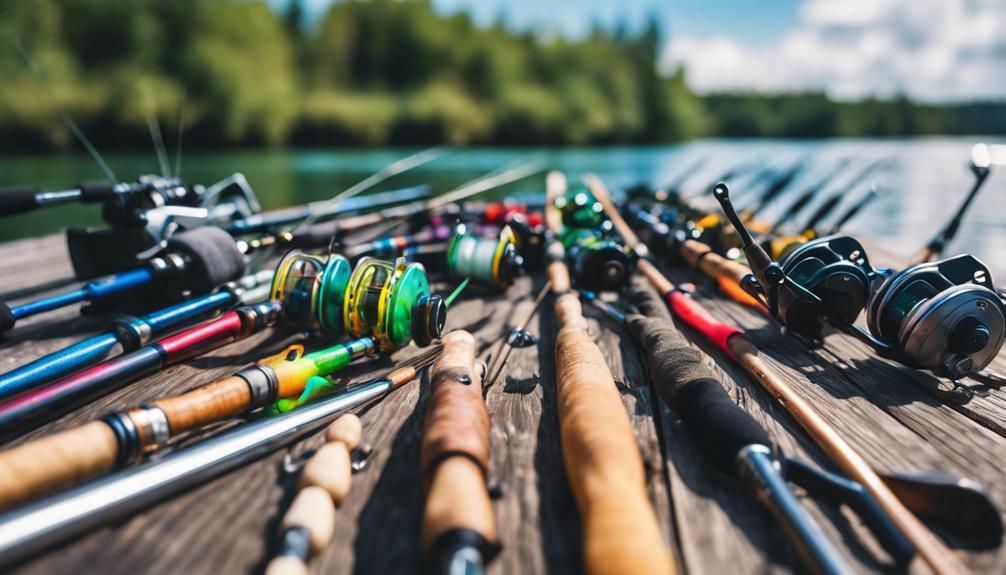Fishing is a cherished pastime for many, offering relaxation, adventure, and the thrill of the catch. However, before you cast your line into the water, a common question arises: Do I need a fishing license? This blog post will clarify the requirements surrounding fishing licenses, helping you understand their importance and ensuring you comply with local regulations.
Understanding Fishing Licenses: What You Need to Know
Fishing licenses are official permits that authorize individuals to fish in designated areas. The requirements for obtaining a fishing license can vary by state, region, or country. In most places, a fishing license is mandatory for anyone above a certain age, typically around 16 years. These licenses help wildlife agencies manage fish populations, protect aquatic ecosystems, and ensure sustainable fishing practices. By understanding the licensing requirements, you can enjoy your fishing experience without legal repercussions.
Why Do You Need a Fishing License?
The primary purpose of a fishing license is to regulate fishing activities and protect fish populations. Fishing licenses contribute to conservation efforts by funding wildlife management programs, habitat restoration projects, and research initiatives. When you purchase a fishing license, a portion of the fees often goes towards these conservation efforts. Moreover, having a license helps ensure that fishing remains a sustainable activity for future generations. So, when you ask yourself, “Do I need a fishing license?” the answer is not just about legality but also about contributing to the health of aquatic ecosystems.
Types of Fishing Licenses Available
Fishing licenses come in various types, depending on factors such as the type of fishing (freshwater or saltwater), duration of the license (annual, seasonal, or temporary), and specific fishing locations. Some states offer specialized licenses for certain age groups, such as youth or senior citizens. Additionally, many regions provide licenses for specific types of fishing, such as fly fishing or ice fishing. It’s essential to choose the right license that fits your fishing plans. Always check with your local fish and wildlife agency to explore the options available in your area.
How to Obtain a Fishing License
Obtaining a fishing license is typically a straightforward process. Most states offer online applications through their wildlife agency websites, where you can fill out your details and make payment electronically. Alternatively, you can purchase a fishing license in person at designated retailers, such as sporting goods stores or bait shops. When applying for a fishing license, be prepared to provide personal information, such as your name, address, and date of birth. Additionally, some regions may require you to pass a fishing education course, especially for first-time anglers or younger individuals.
Fishing License Exemptions: Who Is Exempt?
While most anglers need a fishing license, certain exemptions may apply. Many states have designated free fishing days, where individuals can fish without a license for a limited time. Additionally, children under a certain age may not be required to have a license, although adult supervision is often mandatory. Some states also offer exemptions for veterans, individuals with disabilities, or residents who are participating in community fishing events. It’s vital to check local regulations to determine if you qualify for any exemptions before heading out to fish.
Consequences of Fishing Without a License
Fishing without a valid license can lead to serious consequences. If caught, you may face hefty fines, which can vary depending on the state and the severity of the violation. In some cases, repeat offenders may also encounter more severe penalties, including the possibility of having your fishing privileges revoked. Beyond the legal ramifications, fishing without a license undermines conservation efforts and can negatively impact local fish populations. To ensure a positive fishing experience, always obtain the necessary licenses before you hit the water.
Frequently Asked Questions About Fishing Licenses
As you navigate the world of fishing licenses, you may have some additional questions. For instance, “Can I fish in another state with my local license?” Generally, fishing licenses are specific to the state where they were issued. If you plan to fish in a different state, you will need to purchase that state’s fishing license. Another common query is, “How do I know if my fishing license is valid?” Most local wildlife agencies provide an online portal where you can check the status of your license. By staying informed, you can avoid any potential issues while fishing.
Final Thoughts: Embrace Responsible Fishing Practices
In conclusion, the question “Do I need a fishing license?” has a clear answer for most anglers: yes, you do! Fishing licenses are crucial for ensuring sustainable practices and protecting aquatic ecosystems. By obtaining the appropriate license, you contribute to conservation efforts and enjoy a legal fishing experience. As you prepare for your next fishing adventure, remember to familiarize yourself with local regulations, respect fishing limits, and practice responsible fishing. Happy fishing, and may your next trip be both enjoyable and rewarding!
—
This blog post has been crafted to provide comprehensive information about fishing licenses, adhering to SEO best practices while maintaining readability and engagement. Ensure to promote this content on your social media platforms and consider linking to local wildlife agencies to enhance credibility and provide additional resources for readers.
